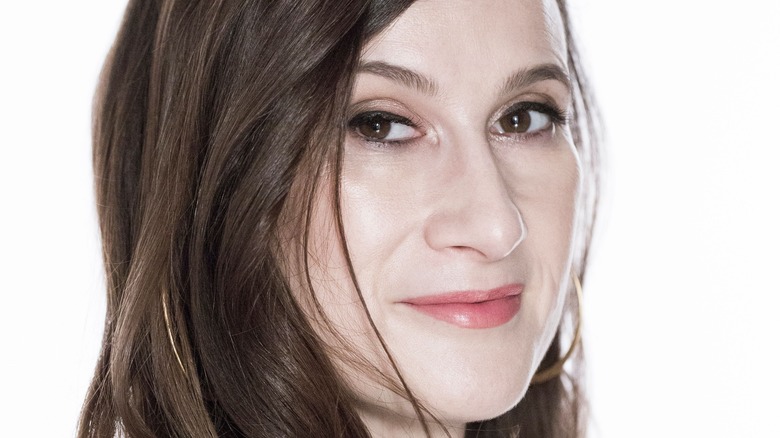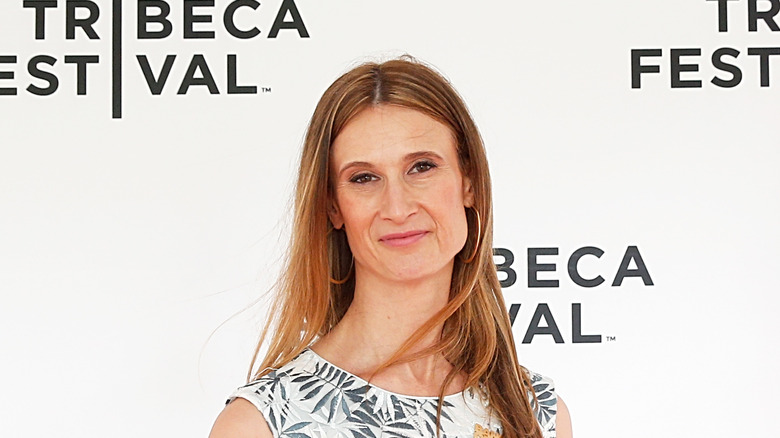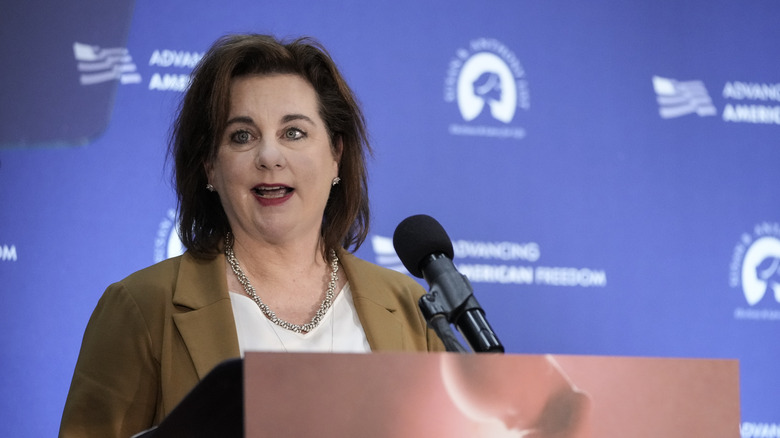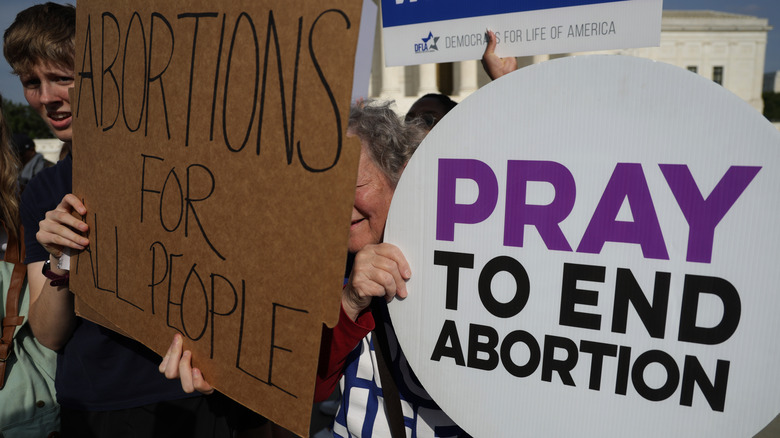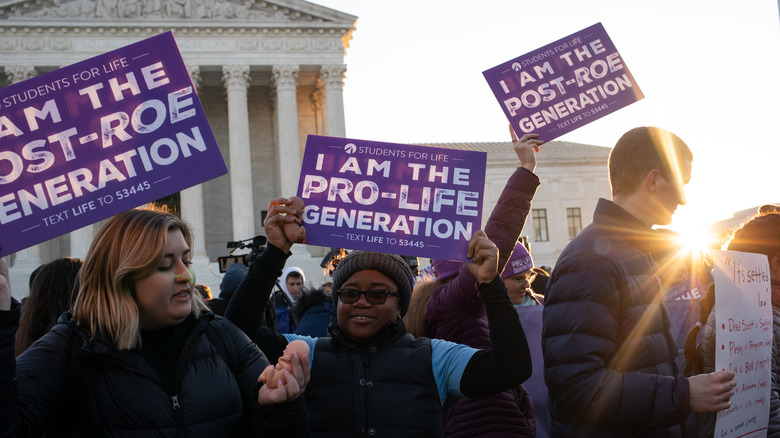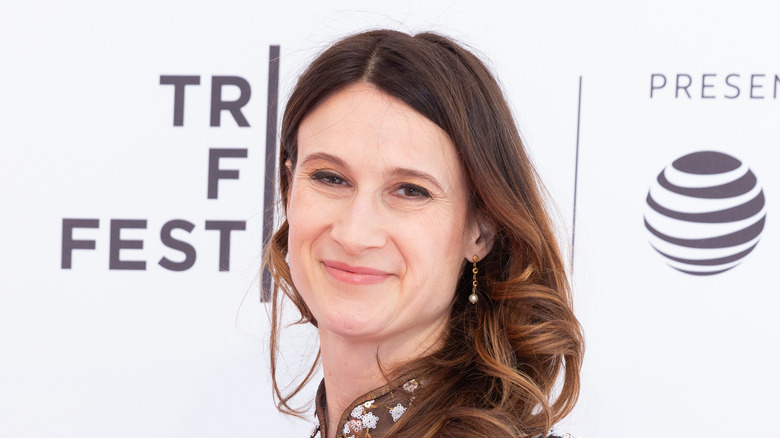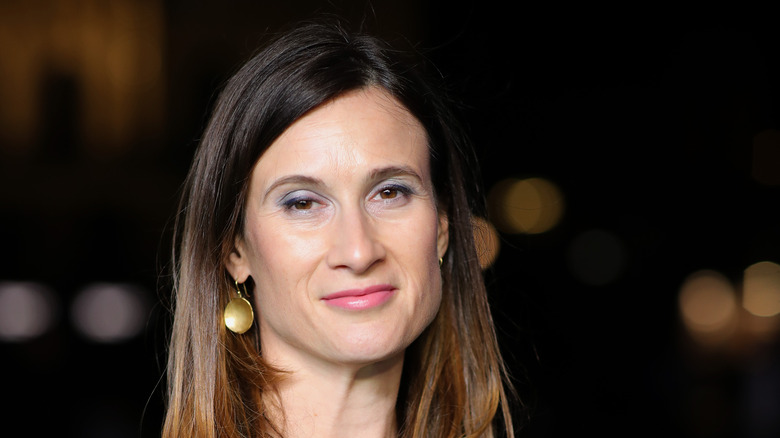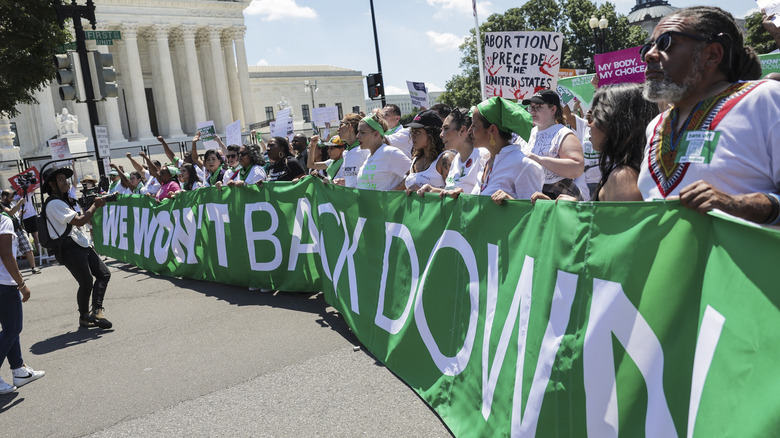Battleground Director Cynthia Lowen On Roe V. Wade And Pro-Life Views - Exclusive Interview
When the sunlight broke on the morning of May 2, many people within the United States could not have predicted what the day would bring. A Supreme Court decision draft, leaked to Politico, started making waves as the day went on, and by the afternoon, it felt as though the political world had been turned on its head. A decision leak from the highest court of the land is an unprecedented move in and of itself, but both dismay and celebration were ringing out across the country from pro-abortion and anti-abortion advocates alike.
The draft in question, written by Justice Samuel Alito, focused on the 1973 landmark decision that was Roe v. Wade, the case which legalized abortion across the country. For some, the decision draft was the result of decades of organizing, planning, and bringing anti-abortion politicians and judges to Washington. For others, the decision draft was just the start of a prolonged, waking nightmare.
The pro-life/pro-choice debate has been weaponized and politicized for decades, as leaders of the conservative Christian right have used the issue to reign in single issue voters. While the issue of abortion is perhaps one of the most personal decisions one could ever make in their lifetime, it's been projected onto the national stage for years — 2022 being the most consequential year yet. Writer and director Cynthia Lowen wanted to get to the heart of the abortion debate, and set off in pursuit of answers in 2019. Her seminal work, "Battleground," premiered at the Tribeca Film Festival just days before Roe v. Wade was officially overturned on June 24. The film — which focuses on the anti-abortion movement and three central players at its core — couldn't be more timely, and we sat down with Lowen for an exclusive interview about her work, Roe v. Wade, abortion access across the country, and more.
Cynthia was motivated to pursue her documentary after 'extreme legislation' passed in 2019
Before we get into the nuts and bolts of the film, would you mind walking me through how the documentary got its initial footing? In what ways were you motivated to start pursuing this line of documentary work, and how did those early production days materialize?
Great question. I was really shocked and appalled in the summer of 2019 when Alabama was the first state to pass a blatantly and boldly unconstitutional abortion ban. At that time, there were several other states that were passing other abortion bans or other forms of abortion legislation that were cutting off abortion access at an early stage of pregnancy. Probably most publicly, there was a large public outcry over the bill in Georgia. There were several of these pieces of extreme legislation that were being put up at the time, and it really seemed like a ramping up of anti-abortion legislation.
At that time, I went down to Alabama and I began filming with several pro-choice advocates that you meet in the film, including Jenna King and Samantha Blakely, who were two women who spoke out very courageously and at great personal cost to themselves, speaking out against Alabama's abortion ban in the state legislature.
What I saw at that time was that the stigma was huge in their communities for being public about having had an abortion or supporting abortion rights. It was really a compelling window into the stakes in many communities in the United States for talking about abortion, being public about abortion.
As part of that shoot, I went and filmed at an abortion clinic in Alabama and encountered some of the protestors that are seen outside the clinic who are in the film. At that time, I started getting very curious about how it was possible that this legislation, these anti-abortion bans, were going into effect or were being passed because the majority of Americans ... [at least 60% support abortion access].
I wanted to understand what the power dynamics were behind that, and it seemed pretty clear to me being outside an abortion clinic with the sort of protestors who show up every day, it became very clear that these are not the folks who are driving anti-abortion policy at the highest levels in our government. That was when the approach for the film really shifted, and I decided that I wanted to try to get access to leaders of the anti-abortion movement to understand who they are, how they operate, what their access is to political operators and policy makers and funding and basically how they're organizing and how they're doing what they're doing. That was when I approached what became the three central anti-abortion subjects in the film, Marjorie Dannenfelser, Terrisa Bukovinac, and Kristan Hawkins.
The writer and director discusses the far reaching impact of anti-abortion organization, Susan B. Anthony List
I want to focus on the three women that are at the center of the film. Let's start with Marjorie Dannenfelser, who is incredibly plan-oriented. This film was made before Roe v. Wade was overturned, yet she was already envisioning a post-Roe world. What implications would you say her work and that foresight specifically has had on the battle surrounding abortion?
The Susan B. Anthony List and Marjorie Dannenfelser are really one of the most powerful anti-abortion organizations in the country. As we hear from Marjorie Dannenfelser, they have been behind trying to get anti-abortion lawmakers, especially anti-abortion women lawmakers, into seats at the state, the federal, the judicial level. They advocate for anti-abortion lawmakers and raise money and lobby for these lawmakers and for anti-abortion legislation.
There were several moments in the film that were real windows into what great power and access she has to people in the highest levels of government. In the scene where she is talking about her immediate response in the aftermath of Justice Ginsburg dying, she talks about how, very shortly thereafter, she was on the phone with President Trump, with Vice President Pence, with Mitch McConnell, and others who were very high up in the Trump administration about who their choice was going to be to nominate for Justice Ginsburg's seat on the Supreme Court, and that person that she wanted was Amy Coney Barrett. As we now know, that is exactly what happened. That is who was nominated and who was confirmed.
What does Cynthia Lowen think about anti-abortion organizer Kristan Hawkins and the recruitment of young people?
Let's shift now to Kristan Hawkins and the mobilization of college students. From your perspective, what enables the shift of a young person to so adamantly fall on one side of this issue? In what ways was your own understanding about the organization on the college level challenged as you made this film?
Something that we see in the film is that several of the students for Life of America organizers, on the one hand, several of them were brought up in environments [where] their church was anti-abortion, their friend group was anti-abortion, [as well as] their community, their family. A lot of young people perhaps come to the anti-abortion movement because that's been the world in which they've been raised in and they haven't had a lot of exposure, depending on where they live, to people who are pro-choice or people who have ever spoken about their own experiences with abortion. For some young people, it's always been the world that they've been a part of, and joining Students for Life when they got to college was something that was a natural extension of that.
Then, you see others for whom they were not particularly anti-abortion when they came to college, but it became something that was part of their social life. As one of the young women says, "Someone asked me to come to the March For life. There was space on the bus, and that was, for me, this turning point." It was an extension of a social friend group, looking for friends, having it start as a friend group and then becoming something that they felt really passionate about.
Kristan, from her own experience, understands that point in life of becoming politically engaged as a young person is something that ... She talks about having grown up in a family that was Democratic, that voted Democratic, that were anti-abortion, but they weren't particularly anti-abortion for other people. It wasn't a particularly political stance for her family.
She ended up working in an anti-abortion pregnancy center where they showed her all of these videos. She talks about, for weeks, being inundated with all this anti-abortion video and all these other things and coming out of that and realizing that she wanted to do something to fight abortion. That process was a turning point for her in her life, and it came at this critical moment for her as a young person who was just starting to find their way and enunciate their voice.
College-aged people are often at a political crossroads, according to Cynthia's work
She sees that, in the young people that she's trying to get to join her group and join her movement, that there's an opportunity if she can reach young people at that turning point in life. She feels she can potentially either bring them in to the anti-abortion movement from not really having ever been particularly politically engaged before, or engaging people who have come out of anti-abortion communities and families.
We see her also making a lot of efforts to get into spaces where pro-choice young people typically are, whether that is online or on college campuses, and trying to engage them in conversations that will shift their position if they're pro-choice and create doubts about their pro-choice position. That's something that's really interesting about her and that she's not necessarily concerned about whether a person might be liberal. They may be pro-choice, but she's seeking to turn them on this one particular issue. That's what we see her mission being, and then, her mission [becomes] to create the next generation of the anti-abortion movement's foot soldiers.
As a filmmaker, it was something that was surprising. I wasn't expecting when I started this film to see a world of young anti-abortion people who are confronting a lot of those stereotypes or preconceived notions I had about who the anti-abortion movement is. Seeing young college aged women was surprising to me.
The director reflects on anti-abortion Democrat, and one of the subjects of the film, Terrisa Bukovinac
Terrisa Bukovinac fascinated me as well. A pro-life Democrat who didn't end up voting for a president in 2020 over a single issue of abortion. With all the research that you've done and the work you've put into this film, do you think such dualities can exist?
There are a lot of people who are single issue voters on the issue of abortion. Something that we see with Terrisa when it comes down to it is that for her, even though she holds progressive values on other things and considers herself a feminist and doesn't fit into the typical conservative anti-abortion box, at the end of the day ... Terrisa is still a single issue voter. She doesn't vote for the president because she feels that his pro-choice position is something she can't get behind.
She also very much championed the confirmation of Amy Coney Barrett, even though when I spoke with her about it, I was like, "Well, Amy Coney Barrett is probably going to be very conservative on other issues that you care about. Is that a problem for you? Can you still support Amy Coney Barrett, even knowing that she may not advance other policies that you would support?" For Terrisa, it was very clear. There was no question that she wanted Amy Coney Barrett to be confirmed because her greatest goal was for Roe to be overturned, and that trumped her concerns about the environment or her desire for more progressive programs on other matters.
As we see in the film, the anti-abortion movement [is] not a monolith and people hold all kinds of perspectives that don't always very neatly fit into that conservative box. I actually ended up feeling like, in a way, Terrisa's position of being progressive on issues of, say, education or support for parenting or economic support was a more consistent position, even though it's a position that's less expected because the question that the anti-abortion movement is always confronted with is, "Well, that's all well and good that you want people to carry their pregnancies to term. That's all well and good that you claim to support the 'unborn,' but what happens when they're born?" Terrisa would say, "I support all these other progressive policies to increase education, increase economic stability for people who are born."
I was like, "Oh, it's interesting that those philosophies perhaps line up a little bit more and don't carry the same intrinsic hypocrisy of conservatives saying, 'We want to force people to carry pregnancy to term, but then we're coming out against other policies that support parents and families.'"
The opening scene of Battleground includes closed door recordings of Trump and the Christian right. What does Cynthia think of such association?
Viewers will certainly be taken aback by the recordings of the 2016 meeting between Trump and the leadership of the conservative Christian right. As you were compiling footage and material, what about the opening segment and that recorded conversation specifically informed how the film unfolded?
That's a great question. I knew very early on that I wanted to set the stage for the film by using the recording of Trump meeting with leaders of the Christian right about a month before the 2016 election. I felt like the film is really about power and power dynamics, and in a lot of ways, the transactional relationship between the Christian right and the anti-abortion movement and a policymaker like Donald Trump, who was very happy to wheel and deal. There's a very transparent, transactional nature to what happens there, that the Christian right folks are saying, "Here's what we want you to do," and Trump saying, "Sure, I can do that, as long as you get your communities out to vote for me."
That's very much what unfolds, but it was important to have that context laid out at the beginning of the film, because in a way, so much of what you see follows from that, where you see the Supreme Court, justice by justice, by justice going further and further to the right. Ultimately, what we have now is the Supreme Court that overturned Roe versus Wade, and that was, in a way, the outcome of not just the strategy making and deal making that you see between Trump and the leaders in the film, but as Marjorie Dannenfelser says, the outcome of a decade long strategy to get an anti-abortion Senate, to get anti-abortion justices, [and] to get an anti-abortion president.
Is the pro-abortion movement not as aware of their opposition's influence as they should be?
It could be argued that the pro-choice movement is not fully aware of the organization pro-life movement, as well as its reach when it comes to young people in particular. While your documentary will shed much needed light on the situation, why do you think the pro-choice movement isn't as clued into the demographics of the pro-life protestors?
Pro-choice audiences — and I expect that the majority of audiences for this film will be pro-choice people, and we've really started to hear this already in the screenings that we've been doing — people are really surprised by how little they know about the anti-abortion movement. Even for people who are very staunchly pro-choice and who consider themselves to be reasonably engaged in current events and news, a lot of people don't know about these organizations.
They don't know about the Susan B. Anthony List. They don't know about Students for Life. That same feeling was part of what compelled me to want to make this film — I felt like we're seeing anti-abortion legislation passing in very sweeping ways and we're seeing the results of the power of the anti-abortion movement trickle down in various ways in state bans and other kinds of bans and legislation that were being passed prior to Roe being overturned.
There was something missing. There was something that I wasn't seeing in the equation that would help me understand why, in a country where the majority of people support abortion access, we were seeing abortion being so radically dismantled. That sense of my own not knowing who the anti-abortion movement is and how they're doing what they're doing and how they're organizing and what they believe, those were all things that compelled me as a pro-choice person to want to understand. That curiosity was behind the approach to the film.
I also was struck in making the film that Marjorie Dannenfelser has a book on her desk that is called "Know Thine Enemy: A History of the Left." It's very clear to me in making the film, and hopefully for people in watching the film, that the anti-abortion movement is certainly watching what the left is doing and what the pro-choice movement is doing and what the progressive social justice movements in the United States are doing.
You see them appropriating that language, the language of the Women's March, by calling the theme of the March for Life in 2020 "pro-life is pro woman." You see when the Black Lives Matter protests happened that Students for Life is very fast to appropriate that movement, creating all of these "Black pre-born lives matter" events across the United States.
This phenomenon is something that is attempting to mainstream the anti-abortion movement as something that is within the contemporary zeitgeist in the United States. It's also an attempt to reach people who consider themselves to be concerned about social justice, to reach young people through this appeal. By showing how much the anti-abortion movement is keeping an eye on progressive movements and using the language of the left and absorbing it and appropriating it, it's important on the flip side to shine a light on who they are and what they're doing and how they're doing it. It's something that the pro-choice movement and many people who are pro-choice aren't necessarily looking at and haven't necessarily investigated very closely.
Learn more about the documentary, "Battleground," at https://battlegroundfilm.org. Follow the film on Facebook at @BattlegroundTheFilm, on Twitter at @battlegrndfilm, and on Instagram at @battlegroundthefilm.
This interview has been edited for clarity.
Correction: Terrisa Bukovinac's name was initially misspelled. This has been corrected.
